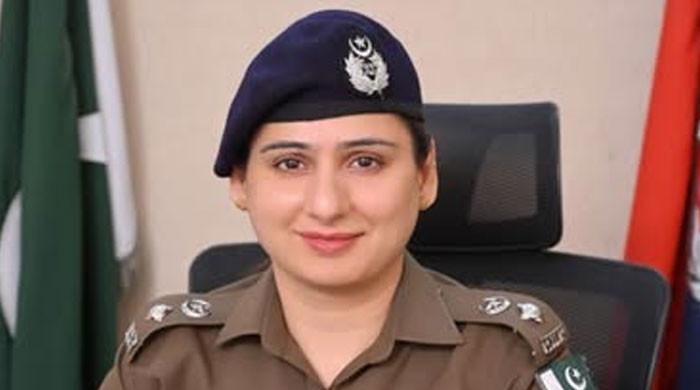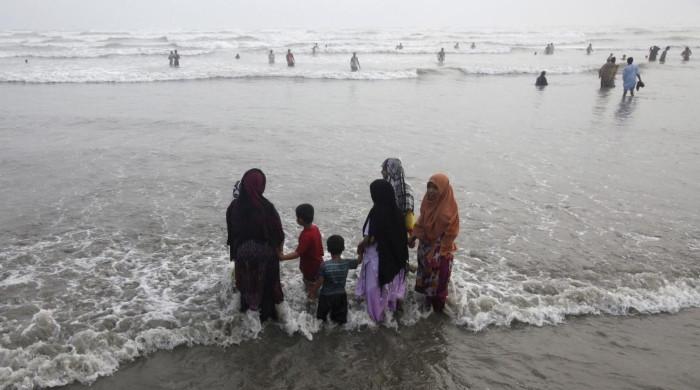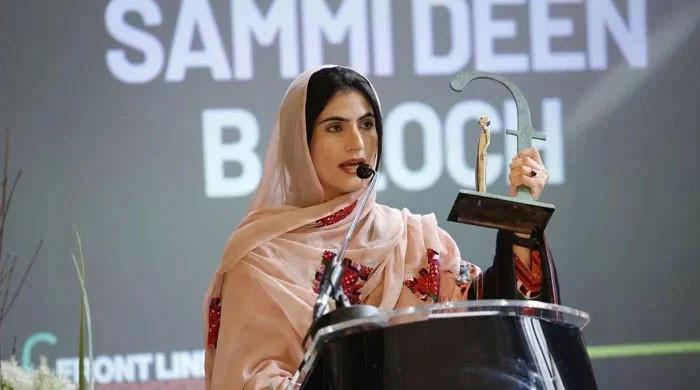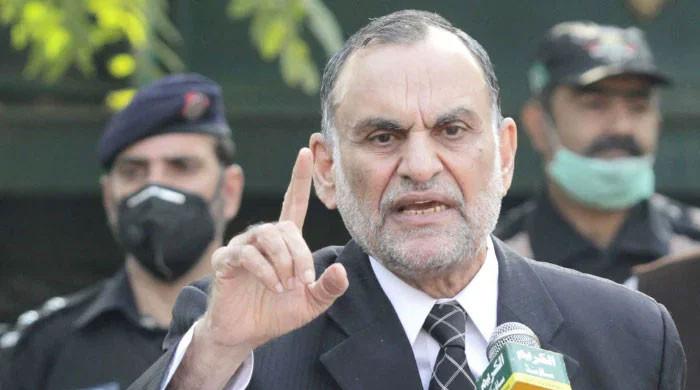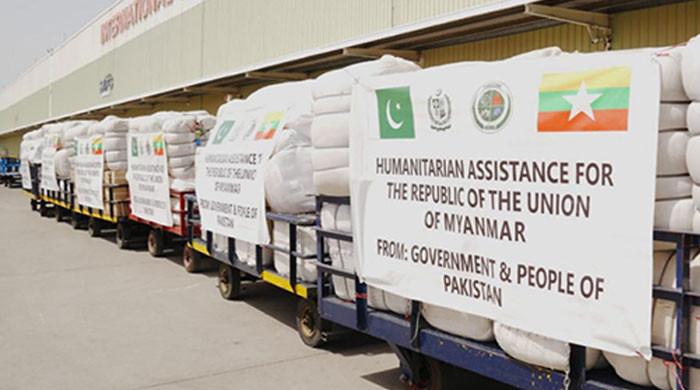Imran Khan castigated for maligning ‘state institutions to hide own corruption’
"The PTI chairman is making all-out efforts to drag the state institutions into politics," says information minister
May 14, 2023

- Marriyum Aurangzeb termed Imran Khan an “ungrateful person”.
- Minister says state institutions don't want to interfere in politics.
- “The PTI has a track record of violent protests,” says info minister.
Information Minister Marriyum Aurangzeb has said that Pakistan Tehreek-e-Insaf (PTI) Chairman Imran Khan is trying to drag state institutions into politics to escape graft cases.
Earlier, the former prime minister — who was removed from office via a vote of no-confidence in April last year — blamed the army chief for his “abduction” on May 9. The government sources, however, confirmed that the armed forces have nothing to do with the arrest of the political leader.
In an interview on Sunday, the information minister said: “The complete record of Imran Khan’s corruption is with institutions and that is why he is calling them out and criticising them regularly.”
She said the institutions did not want to interfere in politics, but it was the PTI chief who criticised them all the time and has been making all-out efforts to drag them into politics.
Marriyum termed Khan an “ungrateful person” who always ditched his benefactors. Whether it was former army chief General (retd) Qamar Javed Bajwa, Jahangir Tareen, Aleem Khan or late Naeemul Haq. She said: "Khan followed the same pattern in the case of all these people".
She alleged that the PTI chairman offered a lifetime extension to the ex-army chief, which he declined. However, Khan resorted to using inappropriate words for him in public gatherings upon his refusal.
The info minister also called out the deposed premier for being a “fascist person” disguised under a political cloak inflicting irreparable damage to the country. "His workers burned schools, state buildings, ambulances and mosques after his arrest in a corruption case."
It was not the public reaction but an armed assault on the public and private properties as part of a premeditated plan, Marriyum said, vowing stern action against those who were involved in vandalism and arson in the wake of Khan's arrest.
She said Prime Minister Shehbaz Sharif had visited the Jinnah House which was burned by armed goons of the PTI. Interior Minister Rana Sanaullah had received all the details of those who were involved in such "abhorrent and unpardonable" incidents.
Action would be taken against them as per law so that nobody would dare to take such misadventures in future, she added.
The minister lauded law enforcement agencies for exercising full restraint against the violent workers of the former ruling party who pelted stones at them and even resorted to firing on their vehicles.
On the other hand, Khan warned of severe sequences if he was arrested again, she added.
“The PTI has a track record of violent protests,” she said while recalling its 2014 sit-in when the party's protesters hung “dirty trousers” on Constitution Avenue and along the walls of national institutions.
She said the coalition government did not believe in political victimisation and had nothing to do with the PTI chief's arrest. “Imran Khan was arrested by the National Accountability Bureau (NAB) and if the government had to arrest him, they would not have waited for 14 months,” the minister added.
The courts, she further said, were giving a bundle of relief to Khan who had disregarded its orders in the past and welcomed the police at his Zaman Park residence in Lahore with petrol bombs when they went to arrest him in line with the warrant issued by the courts.
According to the information minister, the judiciary is the main pillar of the state and has the same role just like the executive and legislature. "Collectively, all these pillars would have to play their due role in implementing the writ of the state."
To a query, she said Khan was ousted from power through democratic means and the power of the vote. He hatched a conspiracy against the state when the then-opposition parties tabled a no-confidence motion against him in the National Assembly.
To another question, she said there is anger among their workers over the relief being given to Khan who weakened the state, ruined diplomatic relations of Pakistan with friendly countries and pushed the nation into an economic quagmire by looting the national exchequer.
She said the law of the land allowed them to record protests in a peaceful way. “I can promise that not a single pot will be broken during the protest of PDM workers.”
“We have sought permission from administration as we are not going to burn the state buildings,” she added.
She recalled the tenure of Khan when political victimisation was at its peak and all the opposition leaders were sent to jail. PM Shehbaz was denied medicine and even a chair in jail to offer his prayer.
The ex-premier was facing outcomes of his own actions, she said, recalling how he made fun of his opponents for their ailments.
Now, she said, the PTI chief himself was seeking bail from the court on medical grounds.





